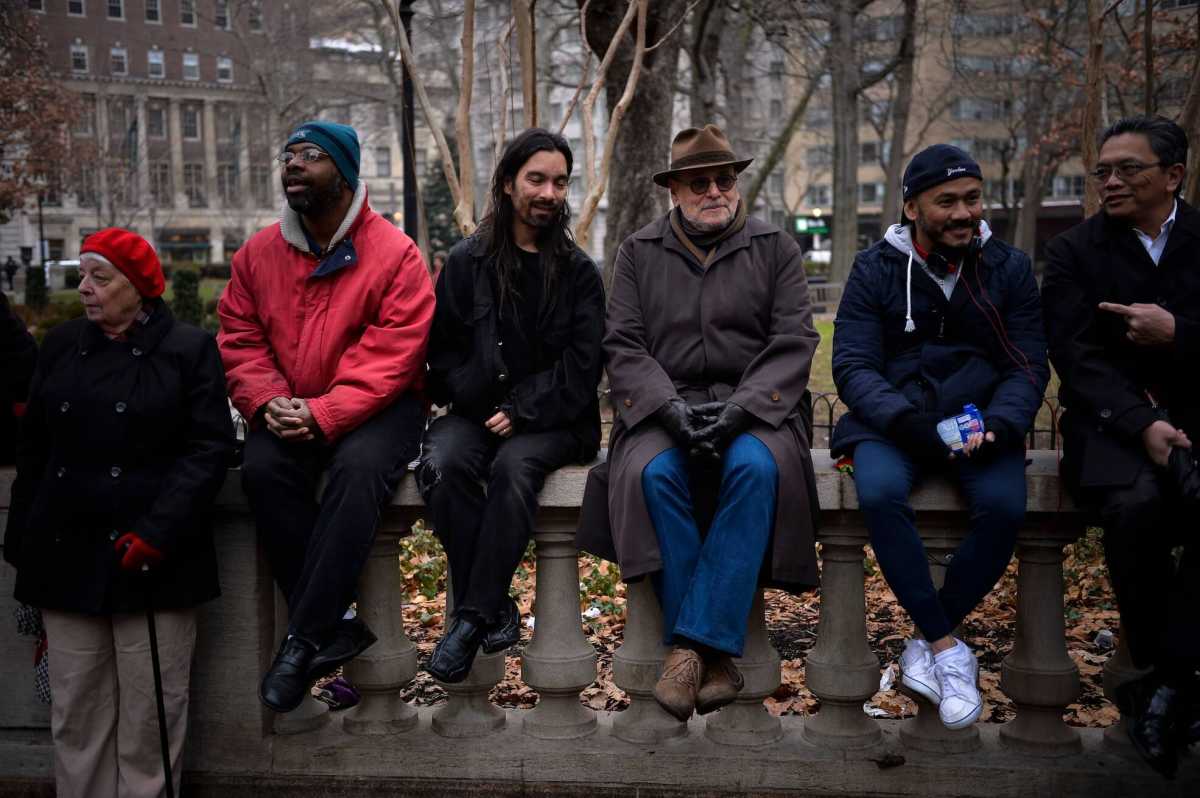A new rule banning visitors to Rittenhouse Square from sitting on the park’s stone walls has been terminated after a massive backlash.
“I sat on this wall for the first time in 1967, and no one’s going to tell me I can’t sit here,” said Lauren Blanchard, 68, who sat on the wall Tuesday during a “Sittenhouse” protest along with dozens of others protesting the rule. But earlier in the day, the no-sitting rule had quietly been spiked. “No sitting” signs were replaced with ones reading, “This is a smoke-free park.” A police cruiser stationed in the park for weeks was also gone. Many park-goers, mostly young people, sit on the stone walls in the park and have done so for decades. Reports of police officers starting to order people off the walls after the new rule took effect last week sparked intense criticism on social media, and two protests of the ban were scheduled this week. Some Sittenhouse protesters carried signs, with messages like “Go sit on it!” and “Your racism is an eyesore.”
Blanchard said the new rules was “well-intentioned but wrong-headed” and poorly timed given the political climate.
“This was just the wrong time to say we would like the young and black people to get away,” she said.
Even Mayor Jim Kenney had criticized the rule on social media over the weekend and told people not to obey it. This week he directed the rule be rescinded.
“The concerns that park users have expressed about litter, vandalism, the structural safety of the wall and smoking (anything, not just pot) in the park are legitimate,” said Ajeenah Amir, a spokeswoman for Kenney, “but I think everyone agrees that banning wall-sitting and using police to actively enforce that was an overcorrection.” The Friends of Rittenhouse Square, which has poured millions into preserving and beautifying the park, had created the new rule in conjunction with police and the department of Parks and Recreation. It was brought about in part due to a shooting in the park in October, and reports of increased drug sales and illegal activity.
Banning sitting on the wall seemed like a good solution to worsening quality-of-life problems in the park, said Vicki Bayle, 76, who identified herself as a member of the Friends group.
“While Love Park is under construction, it seems the drug dealers come here,” Bayle said.
“You get these isolated incidents that besmirch the reputation of the park in the press,” said Richard Branton, 81, another member of the Friends group. “It’s not like there’s no place to sit. There are ample benches here.” While Amir acknowledged the concerns of the neighbors, she indicated those issues can be addressed without having police officers enforce a no-sitting ban.
“Parents should be able to take their kids to the park and not have to worry about exposing them to second hand smoke,” she said. “And if there’s an open park bench, we encourage people to sit there first. But Rittenhouse is a public park that has been enjoyed by visitors for generations, and we want to keep it that way.”
Rittenhouse wall-sitting ban shelved

Charles Mostoller




























